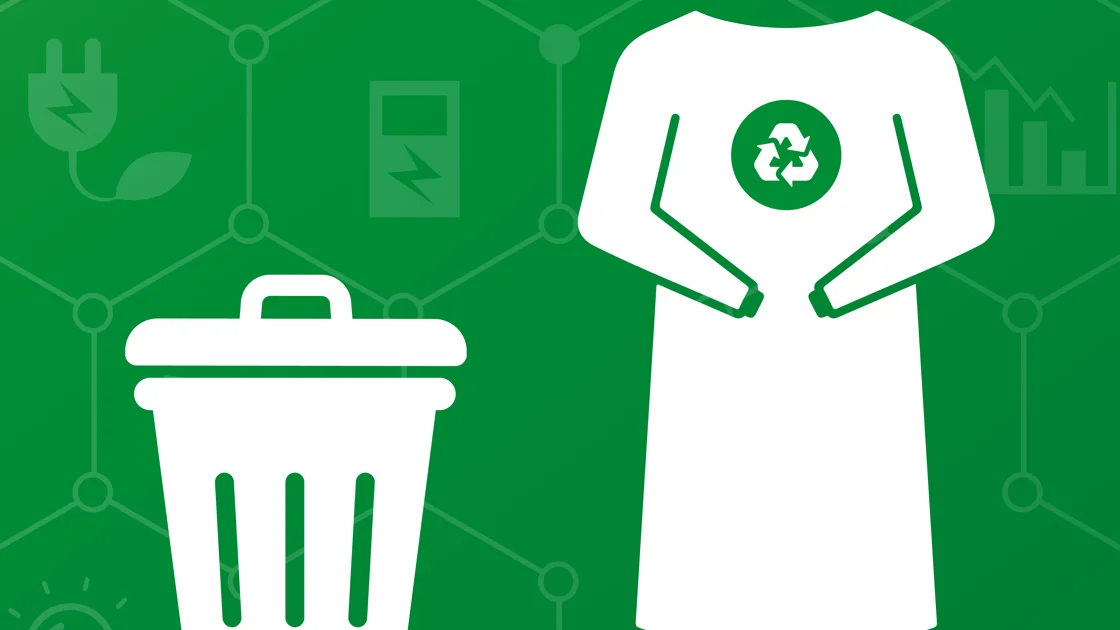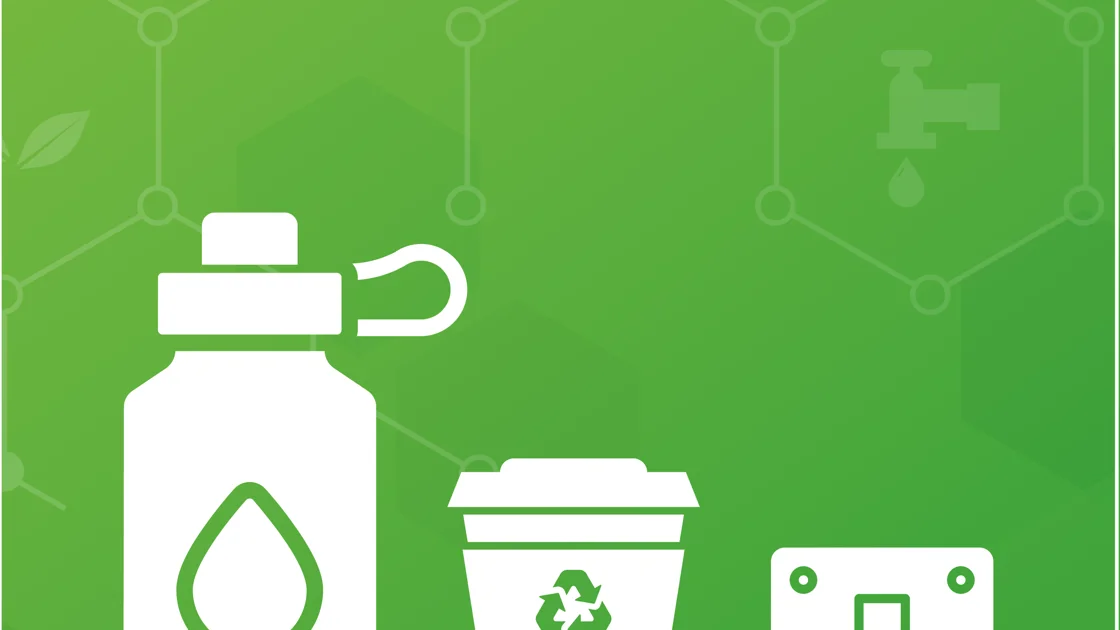The College is making efforts to drive change and has a team of Sustainability Champions to raise awareness. By modifying our own behaviour, raising the issue in local spheres, and engaging in organisational efforts, we can take the next steps in improving our environmental impact.
Below are 12 ideas for environmentally friendly interventions you can take yourself, at home and in the workplace. Take your first step today!
*All references can be found at the bottom of the page.

Prevent Surgical Diseases
The most efficient way to reduce the footprint of surgery? Reduce the number of patients going to theatre through health prevention, patient education and use of procedure room, where possible.
Sustainability in quality improvement: redefining value
Reusable Textiles
Around 36,593,000 surgical gowns were used in the NHS in 2020. Reuseables help us cut emissions and reduce water and energy consumption. Could you introduce reusable gowns and drapes in your Trust? There are lots of UK suppliers ready to help!
Experimental statistics – personal protective equipment distributed for use by health and social care services in England
Get Active or Online
NHS and staff commuting accounts for an eighth of cars on the road and 4% of the entire NHS carbon footprint. Active travel, like walking or cycling, is healthier for both you and your patients. Can meetings be held online? Does follow-up need to be in-person? Can scans be done in one visit? Why not set up a one-stop clinic for your service?
Delivering a ‘Net Zero’ National Health Service
Ditch the Des and Nix the Nitrous
Desflurane is 20 times more potent than Sevoflurane as a greenhouse gas, emitting 886 kgCO2e versus 49 kgCO2e per canister; equivalent to 2,227 miles driven by a typical car. Nitrous oxide also harms the ozone layer. Consider using volatile capture technology, switching to local/regional anaesthesia, and checking nitrous pipes for leaks.
The environment, the gas bill and the route to sustainable anaesthesia
Reusable Items
Around 32% of an operation’s carbon footprint results from procurement. Reusable items are now available. Could anything on your set be swapped for a reusable version e.g. metal kidney dishes or gallipots? How about reusable ports, refillable ligaclips or remanufactured energy devices?
Surgery and the NHS carbon footprint
Ask Your Industry Reps
From April 2023 all NHS tenders will require a 10% scoring value associated with social value and net-zero contributions, so it's time to get cleaned up. Ask industry reps how they are addressing the climate crisis. Do they have recycling and repurposing schemes? Could transportation be reduced? Do they use air freight in the supply chain?
Greener NHS
Green Hats On
Treat yourself and your team to your own reusable surgical hats. This will help reduce the millions of single-use theatre hats the NHS gets through every year. If your name is emblazoned on it, you might improve patient communication, flatten the hierarchy, and boost morale too!

Rub Don't Scrub
If local policy allows, after first wash of the day, subsequent antisepsis of clean hands can be done with alcohol-based hand rub, which has a lower carbon footprint than water-based scrub, and you don’t get your scrubs soggy either!

Lead By Example
Highlight sustainable practices outwith the theatre too. For example, bring your own cup and water bottle, avoiding single-use plastic; try reducing your meat and dairy intake; and switch off the lights and your computer at the end of the day.
Clean and Green: Saving Water in the Operating Theatre
Gloves Off
The NHS used nearly 5.5 million single-use gloves between 2020-2021. Gloves are only necessary for contact with bodily fluid, non-intact skin or mucus membrane. For routine examinations, hand washing/alcohol gel suffices. Cutting out unnecessary glove use can significantly reduce carbon emissions and is better for your hands and for your patients.
GOSH: The gloves are off!Reference Links:

Pyramid Graph: Rizan C, Reed M, Mortimer F, Jones A, Stancliffe R, Bhutta MF. Using surgical sustainability principles to improve planetary health and optimise surgical services following the COVID-19 pandemic. The Bulletin of the Royal College of Surgeons of England. 2020;102(5):177-81. https://doi.org/10.1308/rcsbull.2020.148.

Department of Health and Social Care (DHSC). Experimental statistics – personal protective equipment distributed for use by health and social care services in England: 10 May to 30 May 2021. London: DHSC 2021. Available at https://www.gov.uk/government/statistics/ppe-distribution-england-10-may-to-30-may-2021/experimental-statistics-personal-protective-equipment-distributed-for-use-by-health-and-social-care-services-in-england-10-may-to-30-may-2021. (Accessed 7 April 2022).

Campbell M, Pierce TJM. (2015). Atmospheric science, anaesthesia, and the environment. BJA Education, Volume 15, Issue 4, August 2015, Pages 173–179. https://doi.org/10.1093/bjaceaccp/mku033.

Graphic Source: Whiting A, Tennison I, Roschnik S, Collins M. Surgery and the NHS carbon footprint. The Bulletin of the Royal College of Surgeons of England. 2020;102(5):182-5.
Pie Chart Graph: Whiting A, Tennison I, Roschnik S, Collins M. Surgery and the NHS carbon footprint. The Bulletin of the Royal College of Surgeons of England. 2020;102(5):182-5. https://doi.org/10.1308/rcsbull.2020.152.
National Health Service England (NHSEngland). Applying net zero and social value in the procurement of NHS goods and services. London: NHS, 2022. Available at: https://www.england.nhs.uk/greenernhs/publication/applying-net-zero-and-social-value-in-the-procurement-of-nhs-goods-and-services/. (Accessed 7 April 2022).
Department of Health and Social Care (DHSC). Experimental statistics – personal protective equipment distributed for use by health and social care services in England: 10 May to 30 May 2021. London: DHSC 2021. Available at https://www.gov.uk/government/statistics/ppe-distribution-england-10-may-to-30-may-2021/experimental-statistics-personal-protective-equipment-distributed-for-use-by-health-and-social-care-services-in-england-10-may-to-30-may-2021. (Accessed 7 April 2022). https://www.nipcm.hps.scot.nhs.uk/media/1669/2021-08-18-sicp-lr-headwear-v3.pdf.
National institute for health and clinical excellence (NICE). Surgical Site Infections: prevention and treatment. London: NICE, 2019. Available at https://www.nice.org.uk/guidance/ng125/resources/surgical-site-infections-prevention-and-treatment-pdf-66141660564421. (Accessed 7 April 2022).
- MacNeill AJ, Lillywhite R, Brown CJ. The impact of surgery on global climate: a carbon footprinting study of operating theatres in three health systems. Lancet Planet Health. 2017 Dec;1(9):e381-e388. https://doi.org/10.1016/S2542-5196(17)30162-6. Epub 2017 Dec 8. PMID: 29851650.
- Department of Health and Social Care, Estates and Facilities Division. Health Technical Memorandum 03-01 Specialised ventilation for healthcare premises Part B. June 2021. Available at: https://www.england.nhs.uk/wp-content/uploads/2021/05/HTM0301-PartB-accessible-F6.pdf. (Accessed 2nd May 2022).
- Rizan C, Reed M, Bhutta MF. Environmental impact of personal protective equipment distributed for use by health and social care services in England in the first six months of the COVID-19 pandemic. J R Soc Med. 2021 May;114(5):250-263. https://doi.org/10.1177/01410768211001583. Epub 2021 Mar 16. PMID: 33726611; PMCID: PMC8150566.
- Department of Health and Social Care (DHSC). Experimental statistics – personal protective equipment distributed for use by health and social care services in England: 10 May to 30 May 2021. London: DHSC 2021. Available at https://www.gov.uk/government/statistics/ppe-distribution-england-10-may-to-30-may-2021/experimental-statistics-personal-protective-equipment-distributed-for-use-by-health-and-social-care-services-in-england-10-may-to-30-may-2021. (Accessed 7 April 2022).
- Royal College of Nursing. Tools of the Trade. Guidance for health care staff on glove use and the prevention of work-related dermatitis. 2021. Available at https://www.rcn.org.uk/-/media/Royal-College-Of-Nursing/Documents/Publications/2020/May/009-109.pdf (Accessed 7 April 2022).
- GLOVES OFF CAMPAIGN. Great Ormond Street Hospital. 2018. Available at https://www.gosh.nhs.uk/news/gloves-are-off/. (Accessed 7 April 2022).


